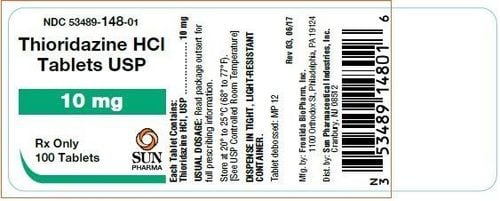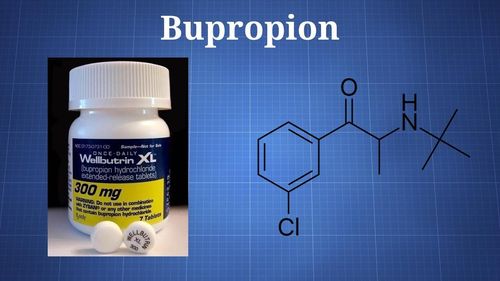This is an automatically translated article.
Rileptid is a drug used to treat all forms of schizophrenia, including first episode psychosis, worsening acute schizophrenia, chronic schizophrenia and other psychotic forms.
1. What is Rileptid?
What is Rileptid? Rileptid has the active ingredient risperidone, which belongs to the group of psychotropic drugs. Dosage form is a film-coated tablet, yellow color, content of Risperidone 2mg.
Rileptid drug effects: the active ingredient risperidone in the drug is a strong D2 receptor antagonist, which helps improve the positive symptoms of schizophrenia, this is a balanced antagonist between serotonin and dopamine receptors centrally, reducing the risk of extrapyramidal side effects and extending the effectiveness of treatment with negative symptoms and emotional symptoms in patients with schizophrenia.
1.1. Pharmacokinetics of Rileptid The active ingredient in Rileptid Rileptid is a selective dopaminergic antagonist with distinct properties. The drug has a high affinity for serotonin 5-HT2 and dopamine D2 receptors. Risperidone binds to alpha-adrenergic receptors and has a lower affinity for histamine H1 receptors and alpha1-adrenergic receptors. The drug has no affinity for cholinergic receptors. Risperidone is a potent D2 antagonist, which improves positive symptoms of schizophrenia, causes little inhibition of motor activity, and causes less posturing symptoms of muscle tension. than classical antipsychotics. Balanced antagonism between central serotonin and dopamine is effective in the treatment of negative symptoms and emotional symptoms of schizophrenia. 1.2. Pharmacokinetics of the drug Rileptid The drug is absorbed almost completely after oral administration, absorption is not affected by food. Distribution: The drug is rapidly distributed, with a volume of distribution of 1 - 2 l/kg, bound to plasma proteins up to 90%. Metabolism: Risperidone is metabolised by CYP2D6 to 9-hydroxy-risperidone, which is pharmacologically similar to risperidone. Risperidone and 9-hydroxy-risperidone are active antipsychotic components. Another metabolic pathway of risperidone is alkyl reduction. Elimination: One week after oral administration, 70% of the oral dose is excreted in the urine (35-45% of risperidone plus 9-hydroxy-risperidone) and 14% in the feces.
2. Indications of the drug Rileptide
Rileptid is indicated in the following pathologies:
Treatment of schizophrenia. Treatment of manic bipolar disorder with moderate to severe depression. Short-term treatment (up to 6 weeks) of conduct disorder in patients with dementia unresponsive to non-pharmacological measures and when there is a risk of harm to self or others. Rileptid is indicated for the symptomatic treatment of conduct disorder in children 5 years of age and older and in adolescents with below-average intellectual functioning or mental retardation diagnosed according to DSM-IV criteria.
3. Usage and dosage of Rileptid
3.1. How to use the drug Rileptid is used orally, the absorption of the drug is not affected by food, so you can take it on an empty stomach or full. Besides, you should choose a certain time each day to take the medicine, to avoid forgetting the dose. The therapeutic dose of Rileptid should be adjusted according to the individual response and tolerability. 3.2. Dosage of Rileptid 3.2.1. For adults Treating schizophrenia: Start with a dose of 2 mg/day orally 1-2 times a day, on the second day the dose can be increased to 4 mg/day. Depending on the response to treatment, the doctor may gradually prescribe the dose according to the individual. Generally, most patients respond to treatment with a dose of 4-6 mg/day Bipolar manic episodes: Start with a dose of 2 mg once daily, then depending on the effectiveness and tolerability of the patient. Allow the doctor to adjust the dose (increase is 1mg/day, the dose adjustment time should not be shorter than 24 hours). 3.2.2. Elderly Schizophrenia, bipolar manic episodes: The initial dose is 0.5 mg, twice daily. Then, depending on the individual, can be adjusted up to 1 - 2 mg twice daily (in increments of 0.5 mg twice daily). Conduct disorder in patients with dementia due to Alzheimer's disease: Initial dose 0.25 mg twice daily. Thereafter, the dose may be individually adjusted in increments of 0.25 mg twice daily. Note that the drug should not be used for more than 6 weeks. During treatment, the patient must be assessed regularly and regularly. 3.2.3. Children Behavioral Disorders:
Body weight greater than or equal to 50 kg, starting dose 0.5 mg once daily, depending on the individual adjust dose in increments of 0.5 mg once daily. The optimal dose for most patients is 1 mg once daily. For body weight less than 50 kg, a starting dose of 0.25 mg once daily is recommended. Next, individually adjust the dose in 0.25 mg increments once daily. Prolonged use of Rileptid requires regular and regular evaluation so that the doctor can adjust the dose to find the target dose.
4. Rileptide side effects
Common undesirable effects such as anxiety, agitation, sleep disturbance, appetite disturbance, Parkinson's syndrome, headache, sitting, restlessness, dizziness, tremor, dystonia muscle , somnolence, sedation, lethargy, dyskinesia, vomiting, diarrhea, constipation, nausea, abdominal pain, dyspepsia, dry mouth, upset stomach,... Rare adverse effects such as confusion, mania, decreased libido, lethargy, nervousness, decreased vision, eye roll, glaucoma, muscle weakness, muscle aches, neck pain, joint swelling, abnormal posture, stiffness, musculoskeletal pain in the chest,... During the course of taking the drug, if you experience the above symptoms or any other symptoms, please report it to a qualified doctor to receive advice. most accurate question
5. Contraindications when using Rileptid
Rileptid is contraindicated in the following cases:
Do not use Rileptid for children under 5 years of age with behavioral disorders. Risperidone should not be given to children under 18 years of age with schizophrenia and manic bipolar disorder. Do not use the drug for people with a history of allergy to Rileptid and other ingredients in the drug.
6. Rileptide drug interactions
Use Rileptid with caution with drugs that prolong the QT interval, such as class Ia antiarrhythmics (quinidine, disopyramide, procainamide), class III antiarrhythmics (amiodarone, sotalol), tricyclic antidepressants (amitriptyline), a tricyclic antidepressant (maprotiline). Some antihistamines, other antipsychotics, some antimalarials (chinice and mefloquine) and with drugs that cause electrolyte imbalances (hypokalemia, hypomagnesaemia), slow the heart rate heart. Co-administration of risperidone with drugs acting on the central nervous system, stimulants (alcohol, opiate preparations), antihistamines and benzodiazepines increases the risk of sedation. Rileptid reduces the effects of levodopa and other dopamine agonists. Rileptid enhances the effect of antihypertensive drugs. Carbamazepine, rifampicin, phenytoin and phenobarbital reduce plasma concentrations of risperidone. Fluoxetine and paroxetine, CYP2D6 inhibitors (quinidine), phenothiazines, tricyclic antidepressants and some beta-blockers, verapamil, an inhibitor of CYP3A4 and P-gp increase plasma concentrations of risperidone. Cimetidine and ranitidine in combination with Rileptid increase the bioavailability of the drug. Combining Rileptid with furosemide increases the risk of death in the elderly with dementia. Co-administration of oral Rileptid with paliperidone is not recommended because paliperidone is an active metabolite of risperidone and the combination of the two drugs may lead to increased exposure to the active antipsychotic component.
7. Some notes when using Rileptid
Caution should be exercised when using Rileptid in people with a history of cardiovascular disease (heart failure, myocardial infarction, conduction disturbances, cerebrovascular disease, ...), diabetes mellitus, venous thrombosis, seizures, Parkinson's or Lewy body dementia. For elderly patients, debilitated people, impaired liver and kidney function and people prone to hypotension, treatment should be started with a low dose. Pregnant and lactating women need to consult a specialist before using Rileptid that affects the nervous system and vision, so people who are driving or operating machines need to be careful when using the drug. Rileptid should be used only with a doctor's prescription and during use, the dosage should be assessed regularly. Therefore, you need to strictly follow the instructions to achieve the best treatment effect. If you still have any questions about the drug, the effects of Rileptid, please contact the qualified doctors / pharmacists for answers.
Follow Vinmec International General Hospital website to get more health, nutrition and beauty information to protect the health of yourself and your loved ones in your family.
Please dial HOTLINE for more information or register for an appointment HERE. Download MyVinmec app to make appointments faster and to manage your bookings easily.













